Strategie rigenerative per paesaggi mediterranei negletti
Abstract
Il campo di applicazione della ricerca proposta in questo contributo – in riferimento all’obiettivo dell’Agenda 2030 “proteggere e salvaguardare il patrimonio culturale e naturale del mondo” – è la vasta gamma di paesaggi della contemporaneità in area mediterranea definiti “negletti” in quanto a rischio di compromissione o sparizione pur avendo (o avendo avuto) un ruolo identitario fondamentale per le comunità di abitanti in essi insediati. Il prodotto della ricerca è la costruzione di un atlante di strategie – sperimentate in workshop progettuali, laboratori didattici, ricerche teoriche e applicate, attività di terza missione – esportabili e trasferibili in contesti similari a quelli analizzati. Nello specifico di questo contributo sono esposti tre approfondimenti che riguardano: i terrazzamenti rurali abbandonati lungo le linee di costa; le fiumare compromesse dai fenomeni di urbanesimo incontrollato; i borghi spopolati nei territori interni. Ai tre casi studio sono associati i tre concetti chiave – svelamenti, sovrascritture, riconfigurazioni – in una duplice dimensione narrativa e applicativa. Lo scopo ultimo è la sperimentazione di un approccio interpretativo/operativo che accolga i principi di sostenibilità ambientale, sociale, economica – ritenuti imprescindibili nella contemporaneità – declinandoli in relazione alla specificità dei caratteri culturali e identitari dei paesaggi mediterranei, del legame fra rito e rappresentazione, del rapporto tra mito e storia.
Regenerative Strategies for Neglected Mediterranean Landscapes
The field of application of the research proposed in this contribution - with reference to the objective of the 2030 Agenda "to protect and safeguard the cultural and natural heritage of the world" - is the vast range of contemporary landscapes in the Mediterranean area defined as "neglected" or at risk of compromise or disappearance despite having (or having had) a role of fundamental identity for the communities. The product of the research is the construction of an atlas of strategies - developed in design workshops, educational laboratories, theoretical and applied research and through activities of additional fieldwork - exportable and transferable in contexts similar to those analysed. Specifically, this contribution contains three in-depth studies concerning the abandoned rural terraces along the coastline, the rivers compromised by the phenomena of uncontrolled urbanism and the depopulated villages in the internal areas. The three case studies are associated with three key concepts - unveiling, layering, re-configuring - in both the narrative and application. The ultimate aim is the experimentation of an interpretative / operational approach that embraces the principles of environmental, social and economic sustainability - considered essential in the contemporary world - in relation to the specificity of the cultural and identity features of the Mediterranean landscapes, of the link between ritual and representation and of the relationship between myth and history.
Parole chiave
Full Text
PDFDOI: https://doi.org/10.14633/AHR157
Refback
- Non ci sono refbacks, per ora.
Copyright (c) 2019 Vincenzo Gioffrè

This work is licensed under a Creative Commons Attribution-NonCommercial 4.0 International License.
........................................................................................................................................................................................................................................................................................................................................................
ArcHistoR è una rivista open access e peer reviewed (double blind), di Storia dell’architettura e Restauro, pubblicata con cadenza semestrale dall'Università Mediterranea di Reggio Calabria (Laboratorio CROSS - Storia dell'architettura e Restauro, dAeD - Dipartimento di Architettura e Design).
ISSN 2384-8898
![]()

Comitato scientifico internazionale
Maria Dolores Antigüedad del Castillo-Olivares, Monica Butzek, Jean-François Cabestan, Alicia Cámara Muñoz, David Friedman, Alexandre Gady, Jörg Garms, Miles Glenndinning, Mark Wilson Jones, Loughlin Kealy, Paulo Lourenço, David Marshall, Werner Oechslin, José Luis Sancho, Dmitrij O. Švidkovskij
Comitato direttivo
Tommaso Manfredi (direttore responsabile), Giuseppina Scamardì (direttrice editoriale), Antonello Alici, Salvatore Di Liello, Fabrizio Di Marco, Paolo Faccio, Mariacristina Giambruno, Bruno Mussari, Annunziata Maria Oteri, Francesca Passalacqua, Edoardo Piccoli, Renata Prescia, Nino Sulfaro, Fabio Todesco, Guglielmo Villa
 .
. 


2.jpg)
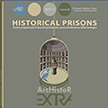
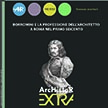
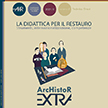

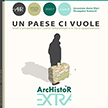
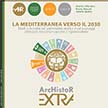
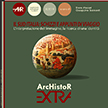
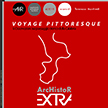
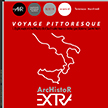
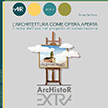
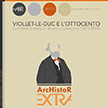
_2.jpg) .
. 
 .
. 

